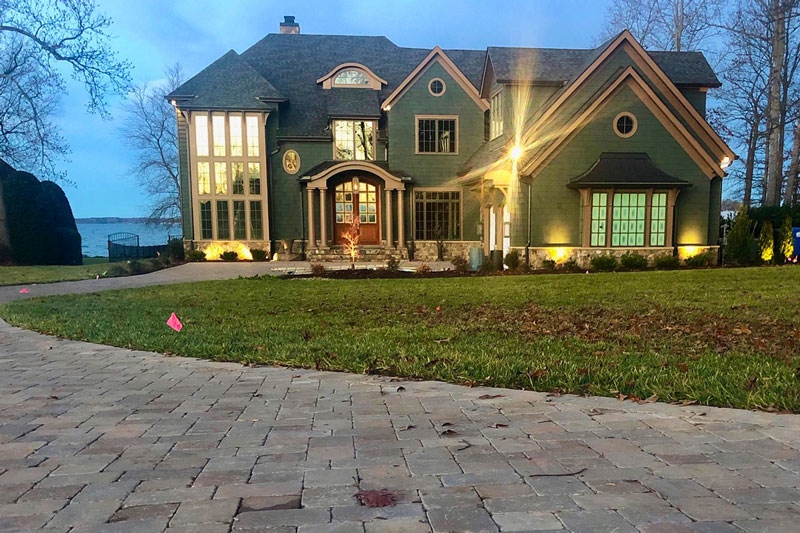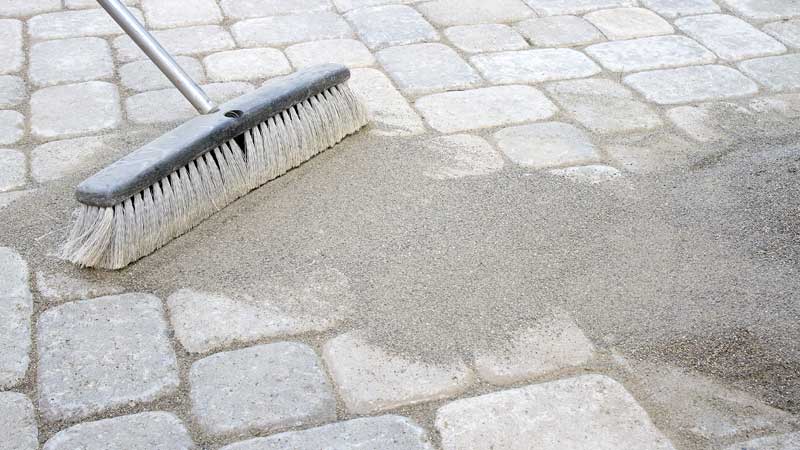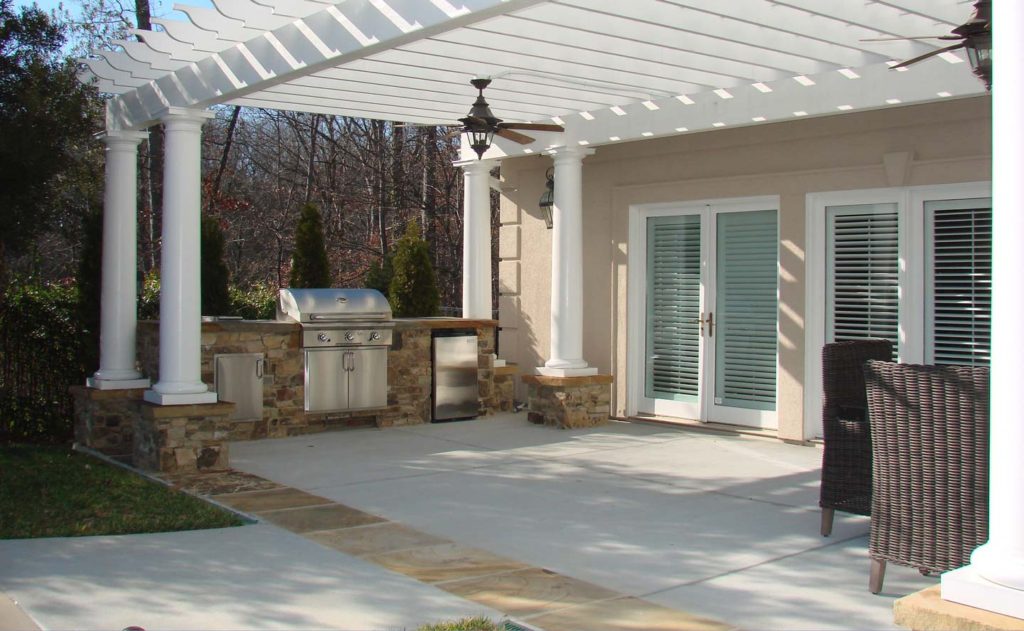When looking for patio paver installation, you may have some questions. They may be about the pavers themselves or whether a use you have in mind makes sense for this product. We’ve compiled a list of 8 of the most common questions about patio pavers people ask before hiring a patio paver installer.
How are Patio Pavers Made?
Pavers can be made of natural stone or porcelain tile, but the kind most people think of and use in their yard are made of concrete. Concrete pavers are made from gravel, sand, cement and a coloring dye. The ingredients are mixed together, then pressed into their shape. The process varies depending on the how the paver will be finished. Some pavers have a more rustic look, while other have a smoother finish. These differences are accomplished using slightly different ingredient mixes and finishing methods in the factory.
Looking for a Patio Paver Installer Near You?
We install patio pavers and more in the Charlotte, NC metro area.
How Thick Are Patio Pavers?
Most concrete pavers used at residential locations are 2 3/8″ (60mm) thick. Commercial pavers, especially for use on streets, are usually 3 1/8″ (80mm) thick. You could use either thickness at your home. 2 3/8″ pavers are thick enough and strong enough to be used as residential driveways.
Of course when planning your patio, the thickness of the pavers isn’t the same thing as how deep you’ll need to dig down for a proper installation. Pavers need to be on a solid foundation, which means they don’t just go on the soil. Instead, there is a proper way to install pavers so they will last for a long time, which includes drainage considerations and a crushed rock “foundation.”
If you find some 1 inch thick pavers, these are made for the specific purpose of laying down on top of already existing concrete. They are thinner than regular pavers so they have a better chance of fitting without blocking doors or creating trip hazards.
Can You Use Patio Pavers for Driveways?
The short answer is yes! As mentioned above, 2 3/8″ pavers and certainly 3 1/8″ pavers are manufactured to hold up to car traffic on driveways. Of course, they need to be installed correctly with a proper base layer so that the weight of the vehicles doesn’t cause dips and uneven spots in your driveway.
And the 1-inch pavers we mentioned in the last section can sometimes be an option on driveways. If you have a concrete driveway and the concrete is in good shape, then you may be able to overlay it with pavers. To put pavers over a concrete driveway, a layer of sand is put down over the concrete, then the pavers are set in place and finished with polymeric sand to lock everything in place. Again, the thickness of the paver used over the driveway surface must allow a good connection at the street and at the garage or entrance doors that open directly onto the driveway surface.

Can You Grout Patio Pavers?
Patio pavers are designed to be a bit flexible, this allows a great looking patio or walkway that is able to survive freezing/thawing cycles and not crack. Grout between pavers will eventually crack. Pavers can be set in mortar for a very permanent installation, however, in most cases this is an unnecessary additional expense.
What Do You Put Between Patio Pavers?
Since mortar is usually not the best solution for residential uses of pavers, many people ask how the pavers are joined together and how to prevent week growth in the cracks. In most applications, the use of polymeric sand is the solution. This special sand is swept into the joints of the pavers after they have all been set. Once exposed to water, it hardens and binds the pavers together. The sand acts as a type of grout or mortar, but without being so rigid. The high-quality polymeric sands available today allow water and air to penetrate, while keeping your patio surface strong and weed-free.

Do Patio Pavers Need to Be Sealed?
Patio pavers are made of concrete and don’t need to be sealed anymore than a sidewalk or driveway needs to be sealed. However, there are some benefits to sealing pavers. Some sealants can help enhance the color of the pavers, giving them a “wet” look, even when dry. Sealers can also be useful in preventing staining of the surface from rusting furniture, grill grease, car oil or other liquids that can stain concrete.
Can I Install Patio Pavers Over Concrete?

Yes, BUT….If you look around, you’ll find plenty of home improvement sites that explain how you can install pavers over an existing concrete surface. You can certainly do this if the conditions are all perfect.
- Concrete is in good condition with no large cracks
- Concrete slopes properly for drainage
- There is enough space between the existing concrete and any door thresholds to allow for 2 3/8″ or 1″ pavers and a sand layer of at least an inch
- The space remaining between the new patio and the house’s siding still meets building code requirements
- You are happy with the size and shape of the existing patio (square or rectangular will make this a lot simpler)
In most cases, we recommend doing one of two things when faced with an existing concrete surface.
- Remove the existing concrete slab and replace it with properly installed pavers.
- Leave the existing concrete in place and install pavers around it to create the patio surface you want.
How Much Do Patio Pavers Cost?
For most people the cost of the project is one of the main considerations as to whether they will move forward. Pavers range quite a bit depending on the style of paver you want to use. The general price for just the pavers is between $3-$10/square foot. Some pavers cost even more than that. Installation costs include demolition, preparing the surface for the pavers to sit on, laying the pavers in a pattern and landscaping around your project. The best way to get a cost on complete patio or other paver installation is to get a professional estimate. There are too many variables involved to provide a price without taking into account your exact situation.
Do You have a Concrete Paver Project You Need Help With?
If you are in the Charlotte metro area and have a concrete paver project planned, we’d like a chance to talk with you and help you complete your vision.

